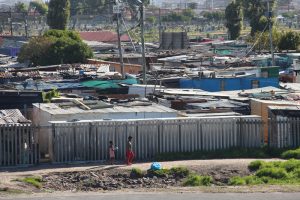 “Investing in people is not only crucial for socioeconomic sustainability, but also for climate sustainability. The “Yellow vests” movement in France was only a glimpse into why the ecological transition needs to be backed by social policies, but there is growing awareness of the looming risks.
“Investing in people is not only crucial for socioeconomic sustainability, but also for climate sustainability. The “Yellow vests” movement in France was only a glimpse into why the ecological transition needs to be backed by social policies, but there is growing awareness of the looming risks.
Reducing inequalities allows us to shift from the gridlock of only talking to the established elite. In turn, this will facilitate climate action and open up the possibility of doing things differently.”
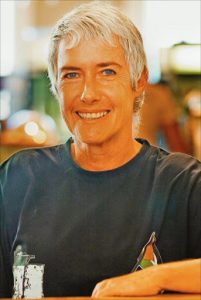 “SA needs to differentiate between different sorts of gas as it looks to develop a new gas sector. It’s important to distinguish between new gas exploitation, for example of offshore gas and shale gas, which are fossil fuels, and ‘new gases’ like green hydrogen or green ammonia, which are not fossil fuels.
“SA needs to differentiate between different sorts of gas as it looks to develop a new gas sector. It’s important to distinguish between new gas exploitation, for example of offshore gas and shale gas, which are fossil fuels, and ‘new gases’ like green hydrogen or green ammonia, which are not fossil fuels.
We should not be encouraging ‘fossil gas’, but this does not mean that the regional or provincial economy cannot sustainably develop based on renewable energy and ‘new gas’.”
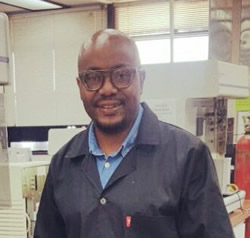 “An alternative renewable source for the production of greener fuel has to be identified for the future.
“An alternative renewable source for the production of greener fuel has to be identified for the future.
Newly developed methods for the production of biomass-derived fuels will help the community to start perceiving biomass materials as very useful materials instead of treating them as just waste materials of no important use in our daily lives.”
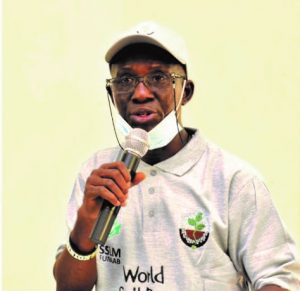 “It is in my conviction that, if we must unleash the full potentials of Agriculture as the much talk about panacea for economic growth and development, then the sustainable and healthy soils com water resources management must be critically looked into.
“It is in my conviction that, if we must unleash the full potentials of Agriculture as the much talk about panacea for economic growth and development, then the sustainable and healthy soils com water resources management must be critically looked into.
There must be a paradigm shift from inappropriate soil and water management practices to sustainable modern management practices in tandem with the exists in knowledge-propel soil quality approaches”.
 “The purpose of the Agribusiness Centre is to enable community engagement through Walter Sisulu University’s academic functions of teaching, learning and research – including skills development, short learning programmes and fundraising for projects.
“The purpose of the Agribusiness Centre is to enable community engagement through Walter Sisulu University’s academic functions of teaching, learning and research – including skills development, short learning programmes and fundraising for projects.
The Agri-Business Centre operates as an integral part of a cooperative network of knowledge and innovation institutions of universities. The socio-economic plight of rural communities will be better served by producing entrepreneurs within the agricultural space who can assist the agricultural communities in creating more sustainable rural economies.”
 “Aquaponics opens opportunities for household gardeners and small-scale farmers. It’s a very simple technology, geared to improve access to fresh foods for children in schools as well as community members. It’s a project that is really supporting the community, but also pushing the agenda of education.
“Aquaponics opens opportunities for household gardeners and small-scale farmers. It’s a very simple technology, geared to improve access to fresh foods for children in schools as well as community members. It’s a project that is really supporting the community, but also pushing the agenda of education.
There are opportunities for learning, and exchanging information and the potential for research generated can play a role in influencing policy on food security”
 “In Nigeria’s schools, there is little or no emphasis on sustainable consumption as part of sustainable development. My call is for the idea of “edutainability”. This I derived from a combination of the words education and sustainability. It is based on the gap I see in the idea of education for sustainable development. This misses the consumption aspect, which adversely affects our environment. I also argue that learning about sustainable development and consumption should not be limited to disciplines in the sciences and technologies. Almost every human action affects sustainability and has an impact on the environment, directly or indirectly.”
“In Nigeria’s schools, there is little or no emphasis on sustainable consumption as part of sustainable development. My call is for the idea of “edutainability”. This I derived from a combination of the words education and sustainability. It is based on the gap I see in the idea of education for sustainable development. This misses the consumption aspect, which adversely affects our environment. I also argue that learning about sustainable development and consumption should not be limited to disciplines in the sciences and technologies. Almost every human action affects sustainability and has an impact on the environment, directly or indirectly.”
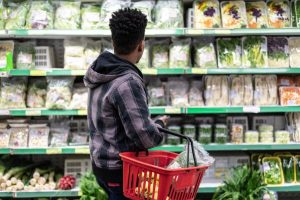 “Over the coming decade, sub-Saharan Africa’s food demand is projected to rise. This will make it one of world’s largest sources of additional demand, rising from 10% to 11% of total global calorie consumption by 2030.
“Over the coming decade, sub-Saharan Africa’s food demand is projected to rise. This will make it one of world’s largest sources of additional demand, rising from 10% to 11% of total global calorie consumption by 2030.
If African countries are to ensure resilient and sustainable agrifood systems, they must upgrade food value chains by shifting production and employment from informal micro-enterprises to formal firms offering wage employment with income security and health benefits for employees. This will also ensure improvements in food safety within the system.”
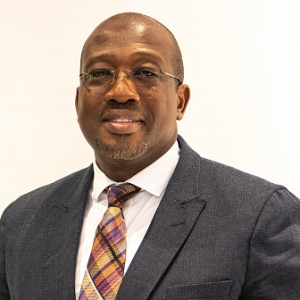 “The idea of sustainability has always been embedded in the very idea of public Universities—but now, that concept has enlarged its meaning and scope. Our students are acutely aware that all of their ambitions are contingent on a stable and resilient physical environment, now becoming visibly and increasingly fragile, and the deliberations of COP 26 has further focused minds.
“The idea of sustainability has always been embedded in the very idea of public Universities—but now, that concept has enlarged its meaning and scope. Our students are acutely aware that all of their ambitions are contingent on a stable and resilient physical environment, now becoming visibly and increasingly fragile, and the deliberations of COP 26 has further focused minds.
The University’s Environmental Fluid Mechanics Lab is prioritising innovative research related to developing renewable energy options, improving coastal water quality, predicting the future of shorelines under climate change conditions, and investigating ocean turbulence and the interplay of waves, currents and coral reefs.”
With food insecurity being one of the leading challenges facing the African continent, the University of Pretoria (UP) is co-hosting a research project aimed at understanding African food systems better and identifying solutions to achieve zero hunger in Africa.
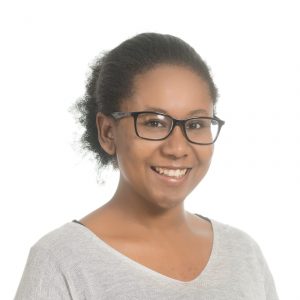 “The model that we use is novel and innovative. The challenges that our food systems face today require new ways of thinking. They require partnerships. As researchers, we need to collaborate with stakeholders to ensure that the research we produce is relevant and meets the stakeholders’ needs. The FSNet-Africa model aims to draw on partnerships with stakeholders to create and design research that is relevant and can inform policymakers how to transform the African food system,”
“The model that we use is novel and innovative. The challenges that our food systems face today require new ways of thinking. They require partnerships. As researchers, we need to collaborate with stakeholders to ensure that the research we produce is relevant and meets the stakeholders’ needs. The FSNet-Africa model aims to draw on partnerships with stakeholders to create and design research that is relevant and can inform policymakers how to transform the African food system,”
 Prof Kehinde also called for the need to bridge the gap between University Researchers and Scientists at the National Research Institute with a view to enhancing research outputs in the agricultural value chain which will ensure food security in the country. Prof Kehinde also acknowledged his University’s role in all this.
Prof Kehinde also called for the need to bridge the gap between University Researchers and Scientists at the National Research Institute with a view to enhancing research outputs in the agricultural value chain which will ensure food security in the country. Prof Kehinde also acknowledged his University’s role in all this.
“Our University should also continue to develop human capacity and materials resources in biotechnology which should be deployed towards promoting agricultural research and food production in our catchment areas.”
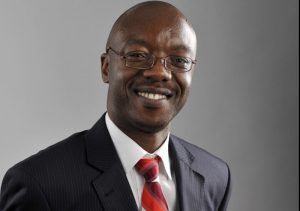 “In developing markets we can’t treat the environment as a secondary concern to development. This line of thinking shows a lack of understanding of what’s at stake.
“In developing markets we can’t treat the environment as a secondary concern to development. This line of thinking shows a lack of understanding of what’s at stake.
People must understand that the issues they would rather prioritise are connected to the sustainability question. To create proper infrastructure and create a thriving economy, developing countries must embrace sustainability.
The issues of sustainability cannot be postponed and that’s why at the University of Pretoria we want to be a transdisciplinary institution. We want to explore how things interconnect and not see things in silos. The silo mentality breeds blind spots that often lead to mistakes and oversights.”
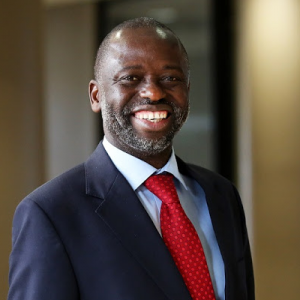 “South Africa’s failure to supply clean water and sanitation is human-made. It is caused by our inability to elect fit and proper people to govern.
“South Africa’s failure to supply clean water and sanitation is human-made. It is caused by our inability to elect fit and proper people to govern.
Our leadership core is too monolithic and lacks critical skills such as engineering, planning, and understanding of the political economy. Political conversations in South Africa revolve around nationalisation, appropriation, and monopoly capital.”
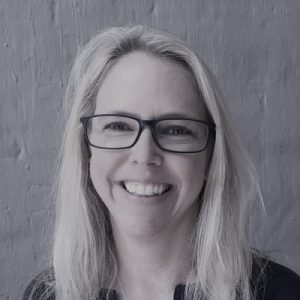 According to Sue Snyman, a research director at SOWC its all about seeking alternative livelihoods for people.
According to Sue Snyman, a research director at SOWC its all about seeking alternative livelihoods for people.
“For me, the key is diversification. Not relying on one thing. People have been going on about alternative livelihoods for 20 years — but I still haven’t seen one working in the field. Except maybe beekeeping.”
To advance this Professor Barend Erasmus, Dean of the Faculty of Natural and Agricultural Sciences (NAS) at UP, called for the forging of deep meaningful relationships.
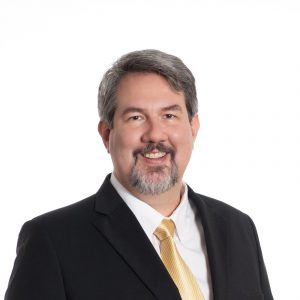 “Deep, meaningful relationships, a nuanced understanding of rural development challenges and the appropriate mix of technical expertise and community reach are key success elements for rural development partnerships.
“Deep, meaningful relationships, a nuanced understanding of rural development challenges and the appropriate mix of technical expertise and community reach are key success elements for rural development partnerships.
Land degradation, triggered by unsuitable farming practices in the face of climate change, can be halted and degraded lands restored to increased productivity – NAS has the expertise to do so, and has demonstrated this capability to other land owners. We look forward to doing so again with the Foundation, to the benefit of our rural communities, and as a flagship success of how universities and communities can partner for a better future.”
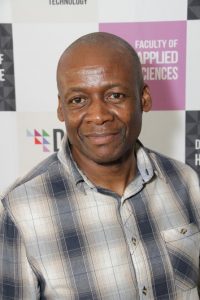 “The global food system has become increasingly homogenous, with less than 30 plant species accounting for more than 95% of human food needs. Part of my research has a strong focus on indigenous food plants, especially vegetables, and understanding the physiological mechanisms that enable these plants to adapt to sometimes extreme environmental conditions drought.
“The global food system has become increasingly homogenous, with less than 30 plant species accounting for more than 95% of human food needs. Part of my research has a strong focus on indigenous food plants, especially vegetables, and understanding the physiological mechanisms that enable these plants to adapt to sometimes extreme environmental conditions drought.
Incorporation of underutilised crop species in food systems has several potential benefits, including better adaptability to local environments in a changing climate and improved food and nutrition security,”
Despite their major contributions, informal reclaimers are often excluded from decisions on waste management practices, as well as from attempts to engage communities in curbside recycling programmes.
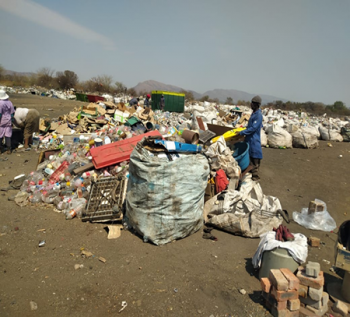 “Informal reclaimers have very little control over the earning potential from this activity. They can control their work hours and try to arrive early on the landfill or streets, but in the end, they are price takers and can only earn in terms of the weight of collectables. Using trolleys is the one thing that enables reclaimers to earn a higher income. Attempts to established cooperatives for reclaimers were more often than not doomed, with most cooperatives folding.
“Informal reclaimers have very little control over the earning potential from this activity. They can control their work hours and try to arrive early on the landfill or streets, but in the end, they are price takers and can only earn in terms of the weight of collectables. Using trolleys is the one thing that enables reclaimers to earn a higher income. Attempts to established cooperatives for reclaimers were more often than not doomed, with most cooperatives folding.
Participatory decision-making is a far better option. Furthermore, the role of buy-back centres as the link between the formal and informal recycling sectors is also often overlooked in policies and action plans pertaining to recycling in general.”
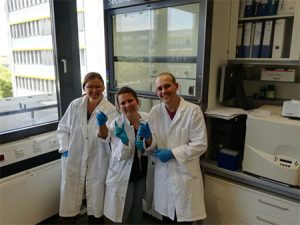 NWU’s Prof Nico Smit says their collaboration was motivated by South Africa’s high output of platinum group elements that might harm the enviroment.
NWU’s Prof Nico Smit says their collaboration was motivated by South Africa’s high output of platinum group elements that might harm the enviroment.
“As with all intensive mining activities, there are always the potential that these activities can result in metal pollution in nearby rivers, thus a proper monitoring mechanism is needed to serve as an early warning tool.”
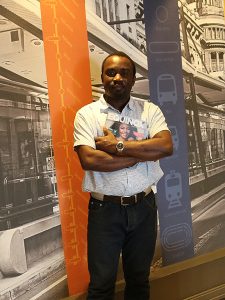 “Indigenous fruits have long been collected from the wild for human consumption and other purposes. This concept of ‘one tree, many uses’ speaks to how indigenous fruit trees are valued for many things other than just their fruits.
“Indigenous fruits have long been collected from the wild for human consumption and other purposes. This concept of ‘one tree, many uses’ speaks to how indigenous fruit trees are valued for many things other than just their fruits.
Indigenous fruit trees have additional benefits: they are naturally adapted to local soils and climates, and often survive environmental stresses better than other exotic or introduced species.”
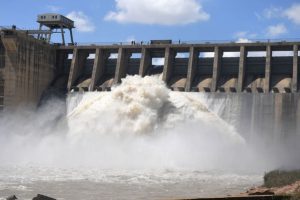 “After good summer rains, the dams that supply water to Johannesburg and much of South Africa’s economic heartland are full. This, then, is the time to start worrying about water supplies.
“After good summer rains, the dams that supply water to Johannesburg and much of South Africa’s economic heartland are full. This, then, is the time to start worrying about water supplies.
It may sound odd but it’s a lesson learnt from cities across the world over the past two decades. Whether it was Sydney and Melbourne in Australia, Chennai in India, Barcelona in Spain or São Paulo in Brazil, we have seen that, too often, water crises occur because societies don’t take action until it’s already too late”
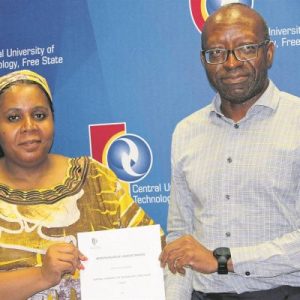 “The future of education in my opinion has to be blended. We still need people to gather around the table even with all this technology at our disposal.
“The future of education in my opinion has to be blended. We still need people to gather around the table even with all this technology at our disposal.
We don’t want to raise a generation of people who avoid face-to-face interactions with other people. You need to see people’s facial expressions and hear them talk live. This is why the future has to be blended.”
Daystar University’s Prof Laban Ayiro, promotes African scholarship to ensure sustainability and authenticity in Africa’s higher education.
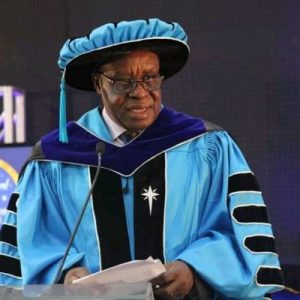 “African scholars and intellectuals must also step up to be counted. Why would I as an African professor use professor Cresswell’s book to teach research methodology when I am a professor like him? I have been in leadership for a long time, why can’t I produce knowledge on leadership without constantly referring to scholars like Maxwell?
“African scholars and intellectuals must also step up to be counted. Why would I as an African professor use professor Cresswell’s book to teach research methodology when I am a professor like him? I have been in leadership for a long time, why can’t I produce knowledge on leadership without constantly referring to scholars like Maxwell?
Some African scholars are beginning to stand up and produce knowledge that will help our continent. I have just published a book on insights into institutional leadership that was to be launched in the presence of His Excellency the President but unfortunately he was out of the country. The cabinet secretary for public service came in his place and we were honored.
I am following that book up with another one next week on functional research methods”.
 “It is critical for us to develop partnerships internally and even outside Africa.
“It is critical for us to develop partnerships internally and even outside Africa.
Developed countries are like that for a reason and it all can’t be attributed to colonisation. Those countries are ahead because they have developed sophisticated systems, products, and ways of thinking. We are yet to catch up as Africans and this is why we are still behind. I advocate for us to partner with people from those countries as often as possible so that we can pick up the pace and catch up quickly”.
Dr. Keith Robert Thomas, Director General at the University of Technology, Mauritius wants the country to turn it’s indigenous knowledge into action for a sustainable future.
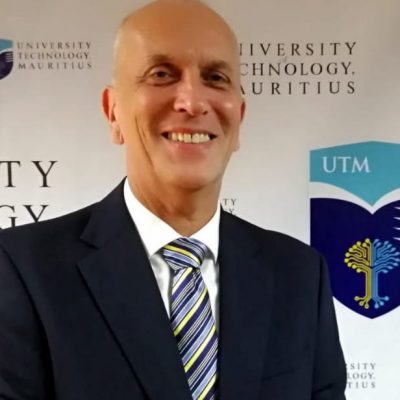 “The island has always been a place of sugar plantations and high-quality tourism. Each of these developments has had a devastating impact on the ecosystem of the island. It is, therefore, a challenge for a small island state like Mauritius to adapt its economy and adapt to these sustainability challenges.
“The island has always been a place of sugar plantations and high-quality tourism. Each of these developments has had a devastating impact on the ecosystem of the island. It is, therefore, a challenge for a small island state like Mauritius to adapt its economy and adapt to these sustainability challenges.
However, there is a lot of expertise here and a lot of knowledge about the issue. Now it is a question of turning that into more visible actions. I think that is the stage we are at, it is time for more swift action. It is time to move on from talk and take action on sustainability.”
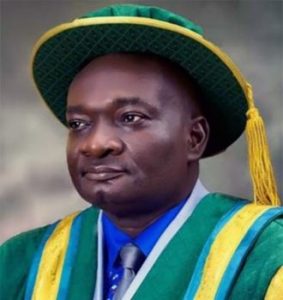 “Our vision is to be a center of excellence when it comes to knowledge generation and to foster an environment of sustainability. We are very particular when it comes to our overall goal of sufficiently supporting the agriculture sector in Nigeria.
“Our vision is to be a center of excellence when it comes to knowledge generation and to foster an environment of sustainability. We are very particular when it comes to our overall goal of sufficiently supporting the agriculture sector in Nigeria.
We want to produce new knowledge in agriculture and contribute immensely to sustainable development.”
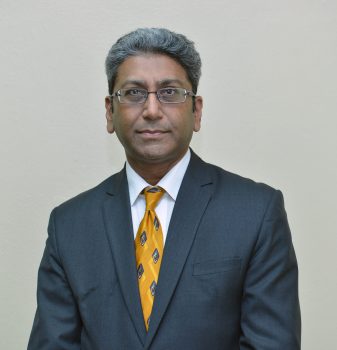 “The COVID pandemic has shown us the need to reimagine the role of universities. We cannot just rely on universities to respond to the need of building human and intellectual capital but also business capital. We also cannot forego social capital.
“The COVID pandemic has shown us the need to reimagine the role of universities. We cannot just rely on universities to respond to the need of building human and intellectual capital but also business capital. We also cannot forego social capital.
The triple helix method of innovation doesn’t hold if the community is not involved sufficiently. We have different organizations in Africa that do a lot but we still come short when it comes to partnerships. I believe we have to start big in this instance. We can begin from our large economic formations such as SADC and COMESA and cascade down.
Universities can also take the agency through different initiatives such as our entrepreneurial drive that led to the establishment of the Agritech Park. We want to groom entrepreneurs to invest in modern agriculture.”
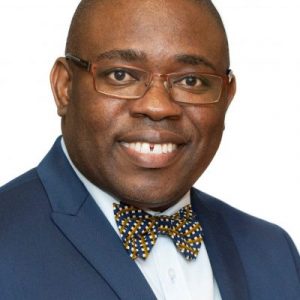 “In the days following the COP 26 summit, AfricaLive spoke with Prof. Letlhokwa George Mpedi, Deputy Vice-Chancellor: Academic at the University of Johannesburg, regarding UJ’s approach to finding sustainability solutions through embracing the opportunities of the fourth industrial revolution.
“In the days following the COP 26 summit, AfricaLive spoke with Prof. Letlhokwa George Mpedi, Deputy Vice-Chancellor: Academic at the University of Johannesburg, regarding UJ’s approach to finding sustainability solutions through embracing the opportunities of the fourth industrial revolution.
“Today you don’t have to be in the same room much less the same continent to easily communicate. Virtual classes can be offered that will help tool and equip our students. Partnerships with local industry can also be a big boost. We need to partner with them on water issues, health issues, agricultural issues and so on.”
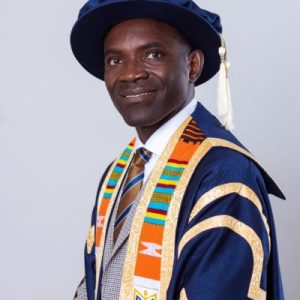 “We have to ensure that we stay update to not only the needs but the new developments out there. It is also imperative for us to look into the future to see how best we can prepare. I took some time to look at our graduate programmes and compared them to those in international markets.
“We have to ensure that we stay update to not only the needs but the new developments out there. It is also imperative for us to look into the future to see how best we can prepare. I took some time to look at our graduate programmes and compared them to those in international markets.
I also took some time to analyse the skill level and work ethic in various markets compared to ours. My analysis has me convinced me that we must fix our issues by redoing our whole education system. We must turn to problem-solving oriented education so that we can service the needs of all stakeholders in our societies.”

